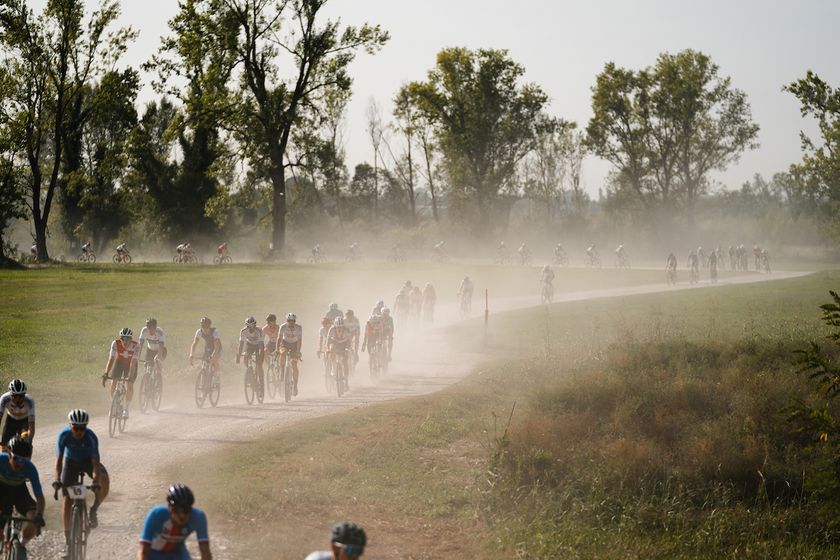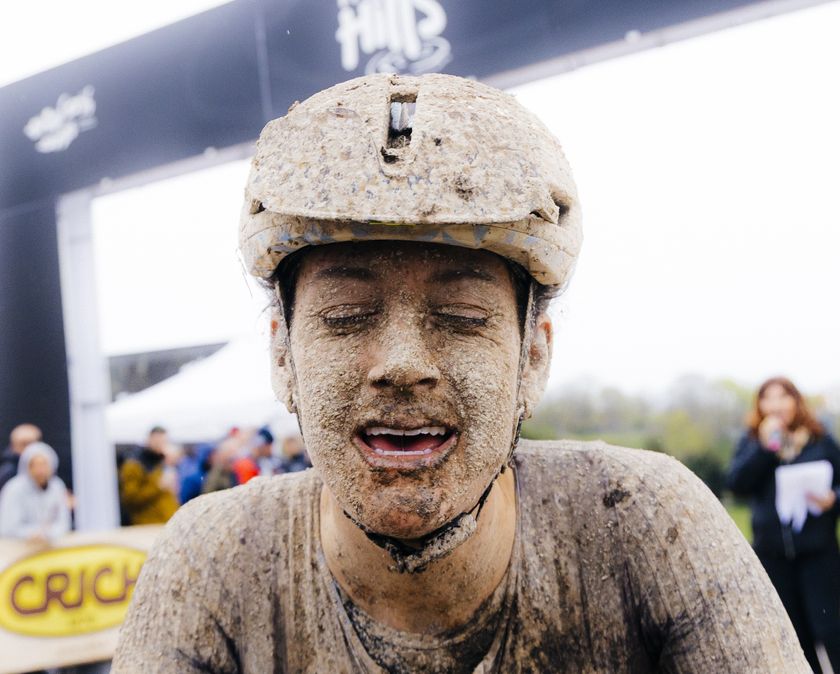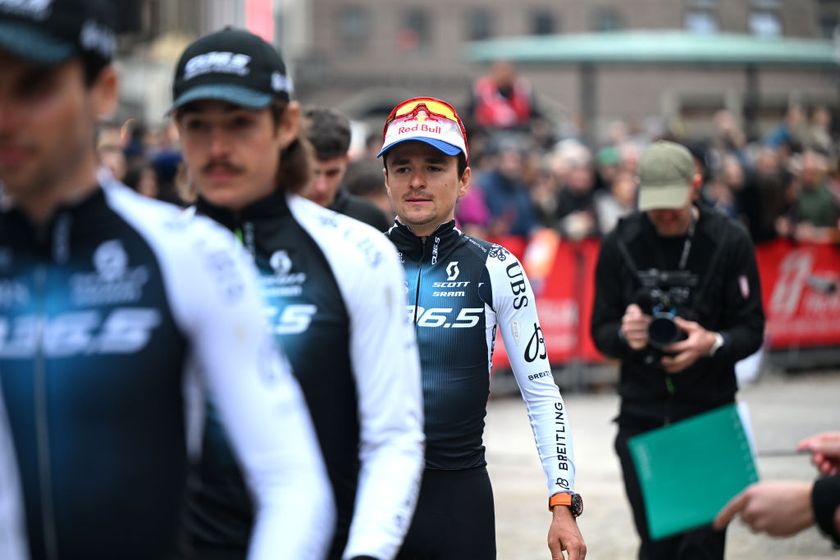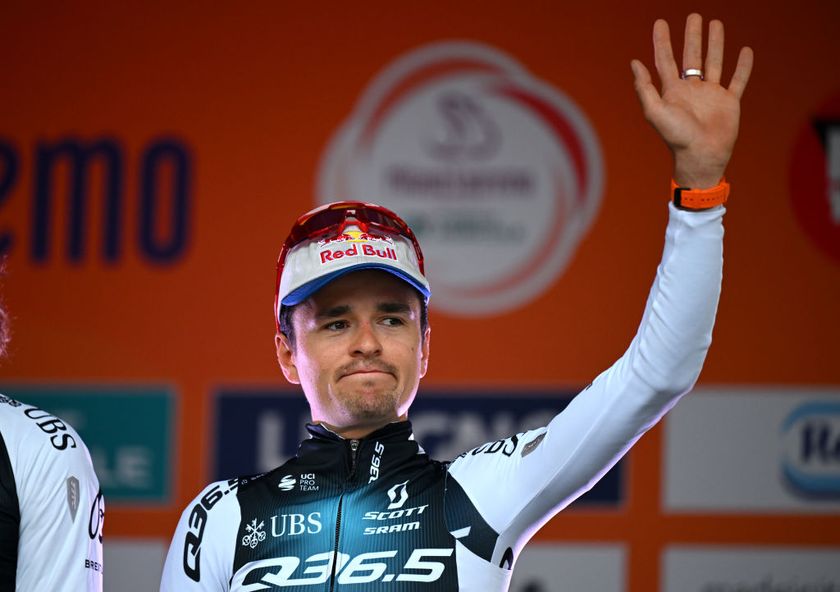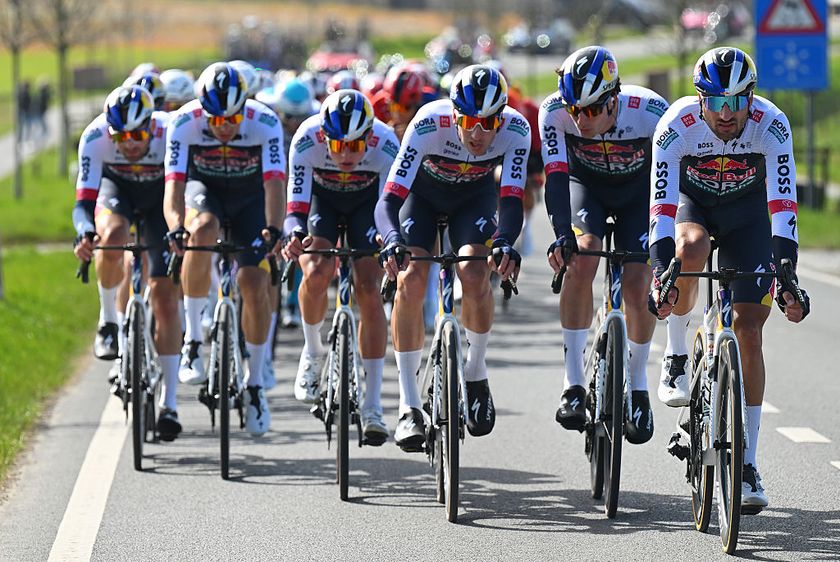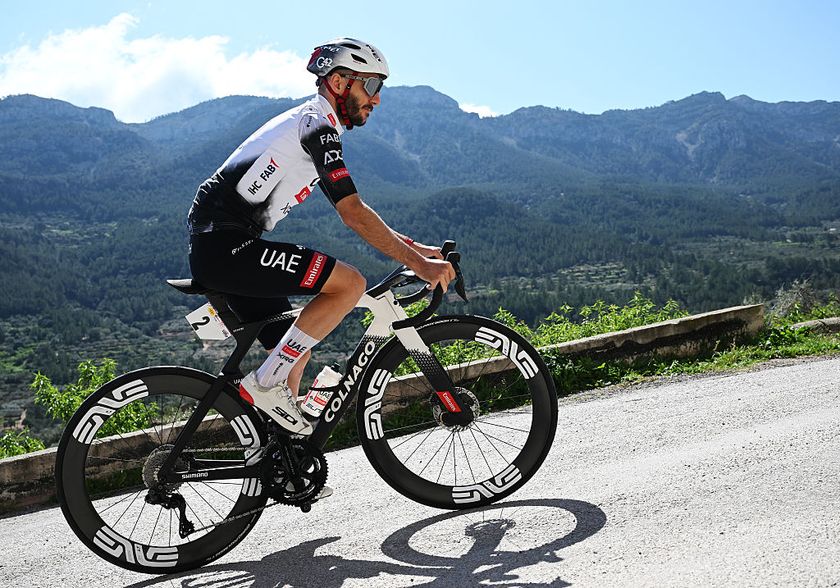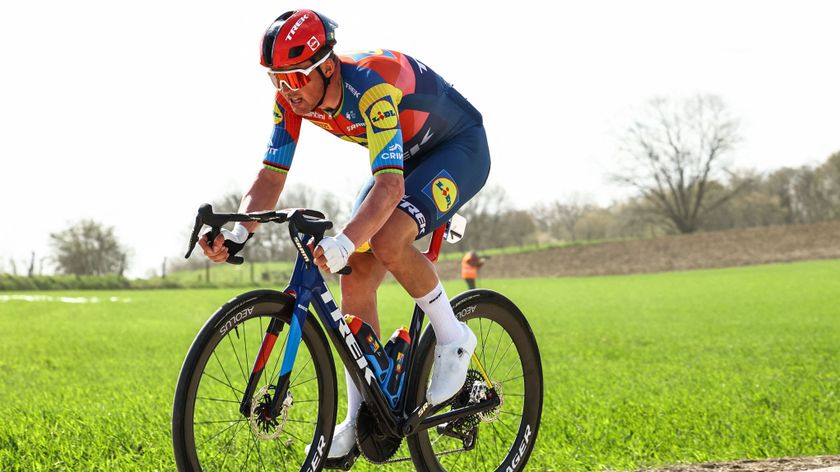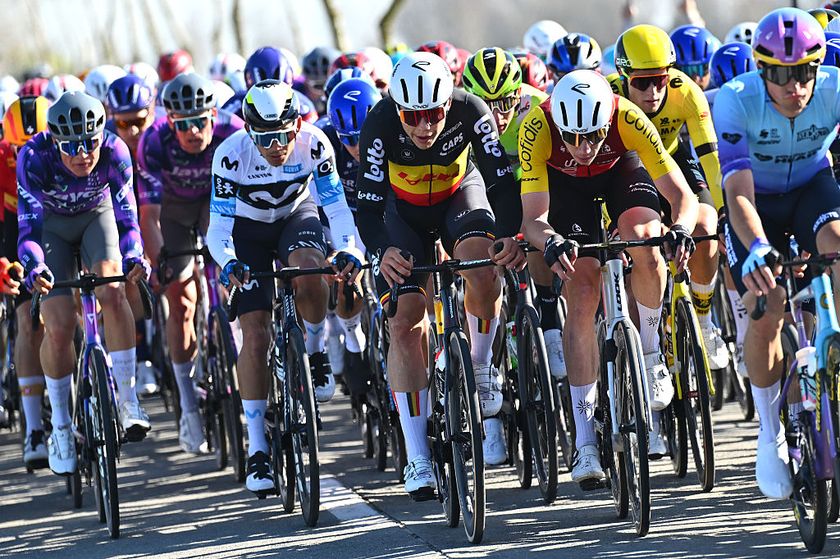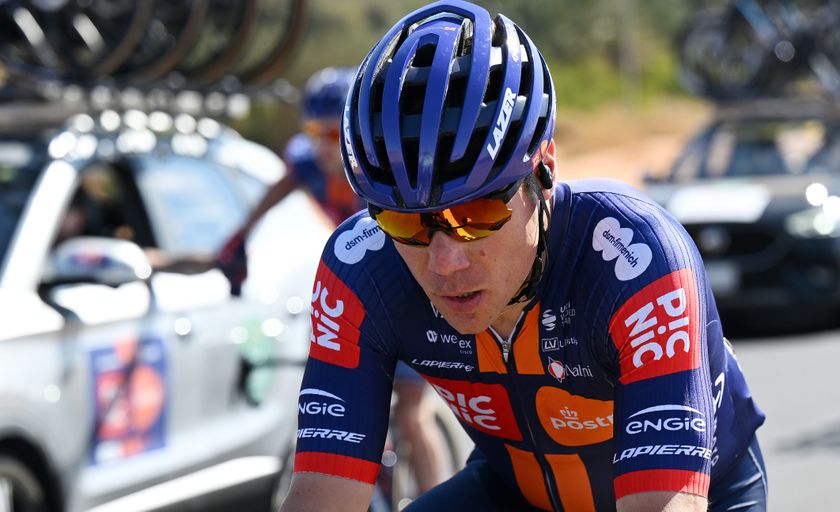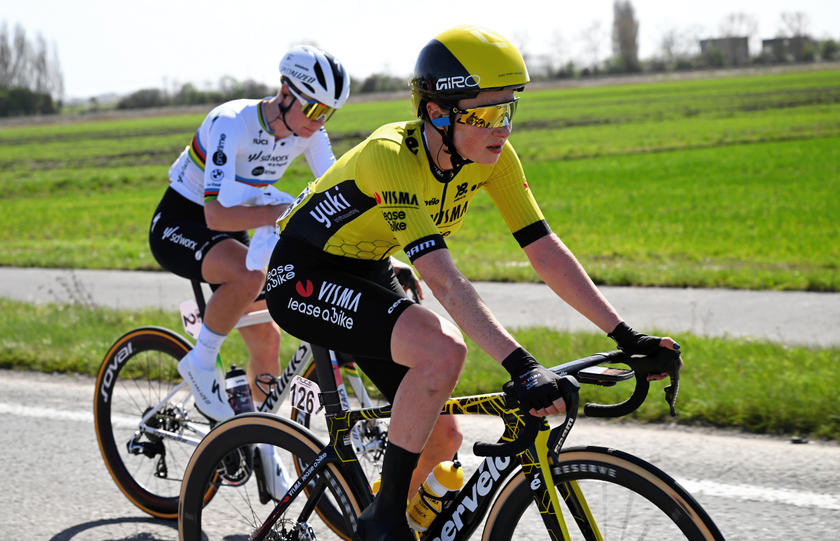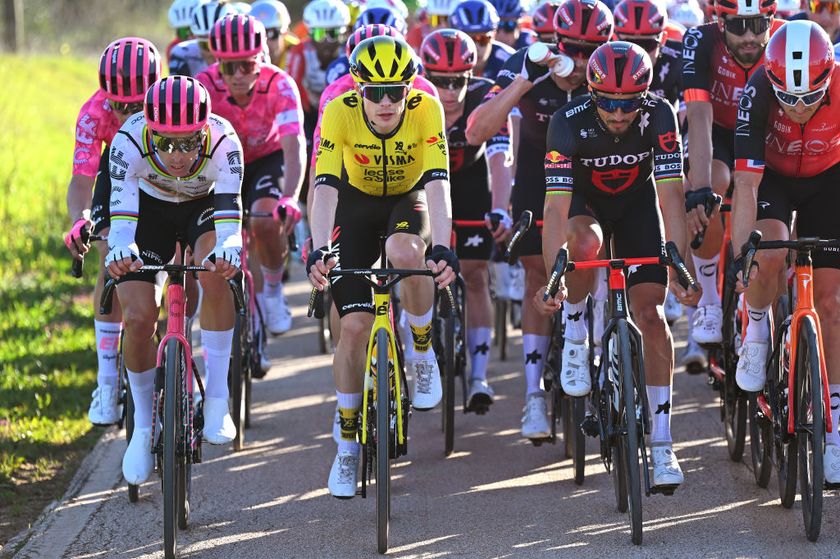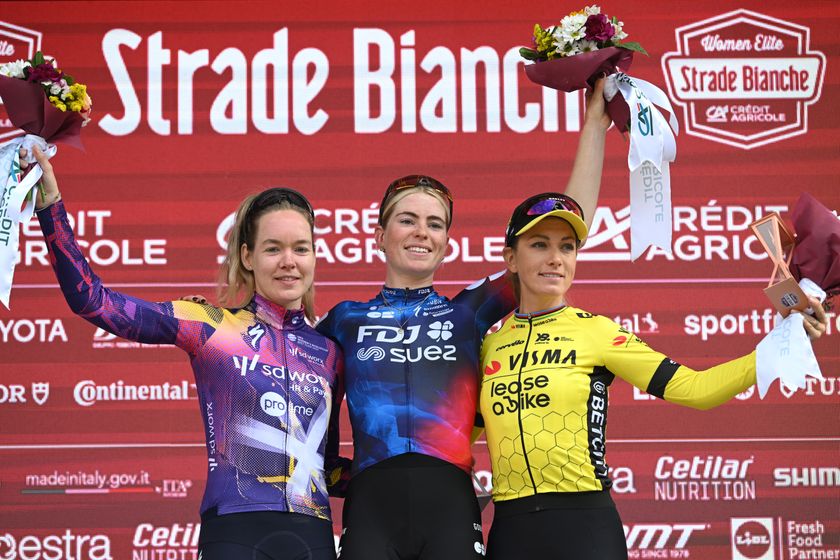Olympic Games: 5 conclusions from the women's road race
Bitter-sweet for the Dutch, heartbreak for Abbott, dangerous descent, Armitstead's participation






Bitter-sweet Olympic Games for the Dutch
Anna van der Breggen, with help from her Dutch teammates, secured the gold medal in the women's road race at the Olympic Games on Sunday. But it would have been a much more jubilant affair had they not been overwhelmed with worry for their teammate Annemiek van Vleuten, who was the solo race leader when she crashed dramatically on the final descent.
Up until that point, the Dutch team was arguably the most aggressive team in the 136.9km race. Ellen Van Dijk rode at the front for most of the day, and into several of the day's decisive breakaways, as did defending Olympic champion Marianne Vos, while van der Breggen and van Vleuten sat in the field and saved their strength for the final climb.
Van Vleuten proved to be one of the strongest climbers in the race, and reached the top of the climb through the Vista Chinesa loop with Mara Abbott. She used her descending skills to create a gap on the American during the route's tricky final descent. Unfortunately, she crashed through a tight corner and cartwheeled over her handlebars onto the curbside. Abbott, followed by a chase group that included Van der Breggen, Elisa Longo Borghini (Italy) and Emma Johansson (Sweden) past a motionless van Vleuten on the descent.
The chasers caught Abbott under 300 metres to the line, and van der Breggen pulled off a convincing sprint to win the gold medal for the Netherlands.
It was tough to celebrate the win having seen their teammate laying on the road just minutes earlier. Updates later in the day confirmed that van Vleuten was in hospital and conscious but suffered a concussion and three spinal fractures.
Heartbreak for Abbott; Team USA tactics
Get The Leadout Newsletter
The latest race content, interviews, features, reviews and expert buying guides, direct to your inbox!
Anyone watching the women's road race would have had mixed motions over its outcome. The final 15km had everyone on the edge of their seats. Abbott reached the top of the final climb with van Vleuten (Netherlands), while a chase group emerged with Longo Borghini, Johansson and van der Breggen. Abbott had lost time to van Vleuten on the descent, but the Dutchwoman's dramatic accident near the tricky, lower turns, all of a sudden put Abbott in pursuit of the gold medal.
With a mere 40-second advantage on the three chasers and 12km to go, the American was visibly pushing as fast as she could to get to the finish line. It was close, too close, and she was caught under 300 metres to go. Van der Breggen won the sprint to the line for gold, Johansson silver and Longo Borghini bronze, and Abbott was heartbreakingly left without a medal.
A post-race photo emerged of veteran teammate Kristin Armstrong consoling a tearful Abbott with one arm wrapped completely around her and a gentle hand on her shoulder. It showed the extent of support Abbott had in her attempt to win the US a medal, even despite the loss.
It is unclear what sort of team tactics Team USA came into the Olympic Games with, but throughout the race, they displayed their strengths with Armstrong covering almost every breakaway attempt until the final climb. It was reported that Evelyn Stevens and Megan Guarnier were with Abbott for most of the race. Stevens worked for Abbott on the lower slopes of the climb until the latter took over and set a pace that only a few could match. That meant favourites like Lizzie Armitstead, and even her own teammate Guarnier could not stay in contention on the climb.
Without knowing what their plan was heading into the race, it’s hard to say whether Team USA could or would have played their cards differently. True, they did not accomplish their goal of winning the gold medal, even though Abbott came so close. The question is: could Guarnier, Stevens or Armstrong have come closer?
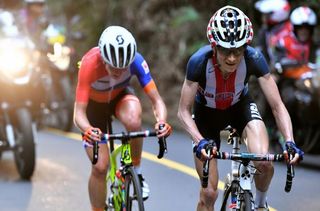
Was the final descent too dangerous?
Van Vleuten's horrifying crash on the final descent of the women's road race begs the question: was the descent too dangerous? There have been varying opinions that support both sides of the argument, however, the UCI released a statement Monday in support of the organisers, saying their route was safe.
"The Rio 2016 road race course was carefully designed and was extensively tested at the test event and in training," the UCI said in a report in The Guardian. "We do our utmost to design safe, challenging courses but unfortunately crashes do sometimes occur due to a combination of factors."
Van Vleuten's crash was the most severe and resulted in a concussion and three spinal fractures. She is expected to make a full recovery. But there were also crashes on the final descent in the men's race the previous day that resulted in injuries for Vincenzo Nibali, Geraint Thomas, Sergio Henao and Richie Porte.
The descent had several tight corners, there were deep drainage gullies carved from the pavement on the sides of the roads, and it has been reported that there were sections of road through turns that had washboard-like pavement.
Some suggested that not enough measures were taken by organisers to ensure adequate safety of the riders on the descent. Others suggested the crashes, which happened in the final 12km of each race, were the result of riders taking too many risks in pursuit of an Olympic medal.
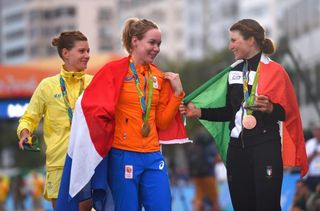
There are only three medals - what teams missed out?
There are only three medals available at the Olympic Games road race that went to Netherlands, Sweden and Italy, which meant that other strong nations missed out.
Germany put forth a commanding race, ensuring they were aggressive and involved in almost every aspect of the day's event. Belgium's Lotte Kopecky started the day with a solo move and Germany's Romy Kasper tried to bridge across. Neither move ended up being successful but Germany continued to have a strong presence in the race with Trixi Worrack in every other breakaway. Germany also forced a threatening moved through the crosswinds after the cobbles during the final lap of the Grumari Park circuit that launched Worrack onto the last big breakaway with Pauline Ferrand-Prevot (France), Marianne Vos (Netherlands), Elena Cecchini (Italy), Gracie Elvin (Australia), Malgortza Jasinska (Poland) and Anisha Vekemans (Belgium).
Team USA was one of the strongest teams on paper and after Armstrong was finished her work for the day, she left Stevens, Guarnier and Abbott perfectly placed at the bottom of the final climb. The team did not bring home a medal, but they were certainly the closest of the other nations with Abbott in fourth.
Great Britain started with Armitstead as the race favourite but with only two teammates; Emma Pooley and Nikki Harris, and that made it tough for them to be involved in everything. Pooley displayed impeccable teamwork up until the final climb, while Harris stayed with Armitstead. The world champion did her best to climb with the lead group but it proved too difficult a challenge and she finished in the chase group for fifth place.
Australia had a full team of four riders and Gracie Elvin gave it an honest attempt when she rode into the last breakaway and started the final climb with a lead on the main field. Her teammates Katrin Garfoot was active in trying to bridge to breakaways and Amanda Spratt finished the highest with 15th place on the day.
For the nations that did not have full teams of four, Ashleigh Moolman-Pasio represented South Africa with a tenth-place finish, while Brazil's own Flavia Oliveira finished a strong seventh place.
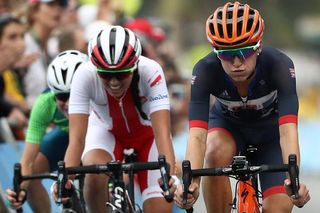
Armitstead's participation in the Olympic Games
Lizzie Armitstead was embroiled in controversy ahead of the Olympic Games after three missed anti-doping tests and filing errors in her World Anti-doping whereabouts file almost prevented her from starting the women's road race.
The Briton took her case to the Court of Arbitration for Sport and successfully had the first missed test removed. Her provisional ban was lifted on July 21 and she was permitted to compete at the Olympics.
But questions remained: was CAS' decision to overturn UK Anti-Doping's provisional ban on Armitstead correct? Further details will emerge when CAS releases its reasoned decision with regard to Armitstead's case. In addition, should Armitstead have been allowed to race in Rio? A question that was particularly heightened given the climate surrounding IOC's move to bar Russian athletes who have served a previous ban from competing following the McLaren report.
Technically, Armitstead was within her right (and the sport's rules) to participate at the Olympic Games, where she lined up with teammates Pooley and Harris. She finished fifth.

Kirsten Frattini is the Deputy Editor of Cyclingnews, overseeing the global racing content plan.
Kirsten has a background in Kinesiology and Health Science. She has been involved in cycling from the community and grassroots level to professional cycling's biggest races, reporting on the WorldTour, Spring Classics, Tours de France, World Championships and Olympic Games.
She began her sports journalism career with Cyclingnews as a North American Correspondent in 2006. In 2018, Kirsten became Women's Editor – overseeing the content strategy, race coverage and growth of women's professional cycling – before becoming Deputy Editor in 2023.
